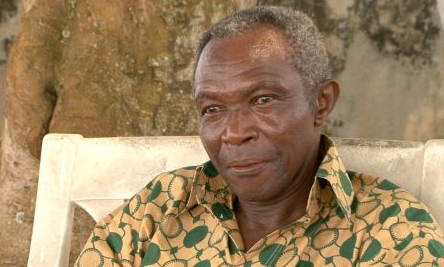Print  |
|


Mpongwe
Page created by:
Lolke van der Veen. Professor in Linguistics at the University of Lumière-Lyon 2, full member of the DDL – Language Dynamics – laboratory (UMR 5596). Lolke van der Veen is a specialist of the languages of Gabon.
Odette Ambouroué. PhD in Linguistics. LLACAN. Author of a thesis on Orungu.

Data on Mpongwe
Alternative names:
While the name “Mpongwe” is commonly attributed to the present language and the ethnic group who speaks it, the Myene (see below) name of this linguistic variety is èβóŋɡwànì. Mpongwe – or Mpongo – is also the name given by natives to the city of Libreville. The Mpongwe were the first inhabitants of the city, founded in 1849.
Dialects & Variants:
Mpongwe is one of the six dialects included in the Myene group.
Classification: Niger-congo, Bantu, B11a
Mpongwe is a Bantu language (Northwest Bantu) referenced B11 according to the Guthrie classification (1967-1971). It belongs to the Myene language group (B10) composed of six, fairly close dialects: Mpongwe (èβóŋɡwànì; B11a), Orungu (èrúŋɡwànì; B11b), Galwa (èɣálwànì; B11c), Adyumba (èdyúmbyànì; B11d), Nkomi (èɣɔ́myànì; B11e), and Enenga (ènéŋɡyànì; B11f). One of these varieties (B11f) could have disappeared already.
Geographic Area: Mpongwe is spoken in the Estuaire province, mainly in Libreville. The Mpongwe are the northern ethnic community of the Myene group.
Number of speakers:
The total number of Myene speakers is estimated between 40,000 and 50,000. The number of Mpongwe speakers could evolve between 1,000 and 4,000, according to the Ethnologue.
Language status:
National language status, like the other vernaculars in Gabon. Mpongwe is clearly endowed with prestige, for historical reasons, but this prestige wasn’t enough to secure the language.
Vitality & Transmission:
With French as a competitor, the future of Mpongwe is very uncertain. As an ethno-linguistic community of over 40,000 people, Myene isn’t as directly threatened. The languages maintaining the highest number of speakers at this point are Nkomi (Ogooué-Maritime province), Orungu (Port-Gentil area), and Galwa (Lambaréné).
Media, Diffusion, Education:
In Gabon, the language of education and administration is French. Mpongwe is used for certain ethno-cultural activities (traditional rites, etc.). Whether it is still used within the family sphere is not certain.
Videos in Mpongwe on Sorosoro.org
In January 2009, Sorosoro went filming the Mpongwe language in Libreville as part of its video documentation program on endangered languages, in collaboration with linguist Patrick Mouguiama-Daouda.
Historical & Ethnographic observations
The Mpongwe played an important part as trade intermediaries between European merchants and the populations of inland Gabon during the colonial and pre-colonial periods. They were already settled in the Gabon estuary in the 15th century, when the first Portuguese sailors arrived. Thanks to the importance they gained through their position as brokers and their contacts with the Whites, the Mpongwe were joined by many women from different populations of the area (Benga, Sekyani, Akele, Mitsogo). Their language was used a lingua franca in western Gabon for a long time.
Sociolinguistic observations
An interruption of cross-generational transmission seems to be engaged. Most of the youngsters in the community no longer have but a partial command of the language (comprehension tasks).
Linguistic observations
Mpongwe remains the most studied variety in Gabon (see references below). At least one phonetic feature is worth mentioning: for words in which other varieties use the sound /m/, Mpongwe attests the sound /w̃/ (nasalized /w/) in certain positions.
A few words in Mpongwe
Proverbs:
Ìdyómbà ŋkálá, ìrɔ́ndá mbɔ̀ɣɔ́: Marriage is a village (you settle for good), a fling is a camp (which you can take apart anytime).
Ndʒɔ̀ɣù ɣémɛ̍n àyɛ́ mpɔ́ɣá, èdówín abolwɛ m’ìɣúmù: When an elephant eats the Mpoga fruit, he places fate in his anus. (Proverb on risk-taking).
Bibliography
Bessieux Mgr. 1847. Dictionnaire français-pongoué, pongoué-français. (2 volumes). Amiens, Lenoël-Hérouart.
Blanchon, J. A. 1991. “Le pounou (B43), le mpongwè (B11a) et l’hypothèse fortis/lenis”. Pholia, 6, pp. 49-84.
Gautier, J. M. 1912. Grammaire de la langue Mpongwè. Mission catholique, Libreville.
Kane, F. 1998. Etude contrastive du français et du mpongwe : approches phonétique et phonologique. Mémoire de maîtrise, Université Omar Bongo.
Mouguiama-Daouda, P. 1988. Eléments de description du mpongwe : phonologie, morphologie du système nominal et pronominal. Mémoire de Maîtrise, Université Omar Bongo.
Mouguiama-Daouda, P. 1990. “Esquisse d’une phonologie diachronique du mpongwè”. Pholia, 5, pp. 121-146.
Mouguiama-Daouda, P., Van der Veen, L. J. 2005. “B10-B30 : conglomérat phylogénétique ou produit d’une hybridation”. In Bostoen, K. & Maniacky, J. (eds.), Studies in African Comparative Linguistics, with special focus on Bantu and Mande. Tervuren: Royal Museum for Central Africa (RMCA/MRAC), Sciences Humaines, pp. 1781-1857.
Ogouamba, P. 1990. Etude morphosyntaxique du verbe en mpongwè, parler B11 du Gabon. Mémoire de Maîtrise, Université Omar Bongo.
Raponda-Walker, A. 1930-1934. Dictionnaire mpongwé-français, suivi de Eléments de grammaire. Metz, Imprimerie La Libre Lorraine.
Wilson, J. L. 1897a (1847). Grammar of the Mpongwe Language. New York, American Board of Comm. for Foreign Missions.
Wilson, J. L. 1879b. “Mpongwe grammar. Comparative vocabularies”. JOAS, 1, pp. 340-341.
Please do not hesitate to contact us should you have more information on this language: contact@sorosoro.org








